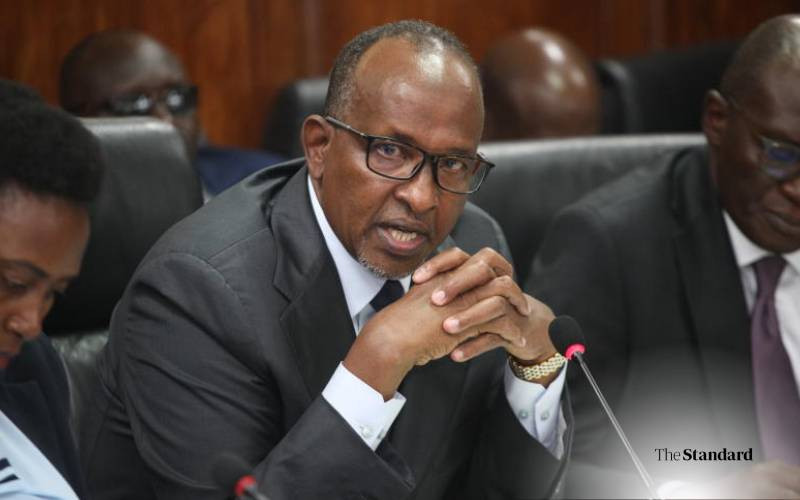Kenya Health CS Launches Benefits & Tariffs Advisory Panel

Health Cabinet Secretary Aden Duale on Monday inaugurated the Benefits Package and Tariffs Advisory Panel and its Secretariat, a significant development in Kenya's progression towards the full implementation of Universal Health Coverage (UHC). The event, hosted at the Ministry of Health headquarters, marked the formal operationalisation of a crucial component of the Social Health Insurance Act, 2023.
The Advisory Panel, which was gazetted on April 23, 2025, is set to play a pivotal role in crafting inclusive, evidence-based health benefit packages and tariff structures. Chaired by public health expert Prof Walter Jaoko, the panel includes distinguished professionals from the Ministry of Health, academia, county governments, and civil society. Its mandate is to guide the Ministry of Health and the Social Health Authority (SHA) on the design, review, and sustainability of benefit packages and healthcare tariffs, utilizing health technology assessments to inform its decisions. These efforts are fundamentally aimed at ensuring healthcare is both affordable and accessible for all Kenyans under the UHC framework.
During the inauguration, CS Duale articulated the government's vision for UHC. “Our goal is to deliver healthcare that leaves no one behind,” he stated. “This panel is central to ensuring that the services offered under UHC align with national health priorities, are affordable for the public, and are financially sustainable for the nation.” He further emphasised the critical need for data-driven health policy, urging the Panel to meticulously assess disease burden, health service accessibility, and affordability to inform its recommendations.
A key concern highlighted by the Cabinet Secretary was the prevalent lack of uniform pricing across the health sector. Sharing personal experiences of exorbitant consultation fees, Duale called for urgent standardisation to protect patients from potential exploitation and ensure fair pricing for medical services.
Echoing these sentiments, Principal Secretaries Dr Ouma Oluga (Medical Services) and Mary Muthoni (Public Health and Professional Standards) voiced their support for the panel's objectives. “This is a great day,” said Muthoni. “The public has raised concerns over inequitable health services, and this Panel will help design fair, evidence-based, and sustainable health benefit packages that address Kenyans’ real needs, especially at the primary health care level.”
The panel's responsibilities will also include advising on the unbundling of healthcare tariffs, identifying priority services that are currently lacking, and integrating donor-supported health programs into the national system. It is expected to convene at least twice annually and produce comprehensive guidance aimed at rationalising pricing for consultations, diagnostics, and pharmaceuticals.
In outlining the Panel’s priority areas, CS Duale pointed to several critical issues requiring immediate attention. These include persistently high service costs, inadequate data on health system performance, the absence of price regulation for essential services and commodities, and the escalating burden of chronic illnesses such as cancer and mental health conditions. He challenged the Panel to recommend sustainable and inclusive solutions that actively promote equity and ensure value for public funds.
To achieve these ambitious goals, Duale stressed the importance of strategic adaptation and development. “We must adapt digital tools, strengthen public-private partnerships, and build technical capacity within the ministry and the Panel itself,” he added, calling upon all stakeholders—including county governments, professional bodies, civil society, and development partners—to support the initiative.
Reaffirming the government's unwavering support, Duale concluded, “This is not just a technical exercise. Building a sustainable healthcare system is a strategic investment in our people and our economy.” The work of the Advisory Panel is anticipated to lay a robust foundation for a more transparent, affordable, and effective healthcare system in Kenya, marking a decisive shift from the opaque practices of the past, particularly under the defunct NHIF. “The era of ad hoc decisions in healthcare financing is over,” Duale declared. “We now move forward with a structured, transparent, and accountable system that puts the health of Kenyans first.”









